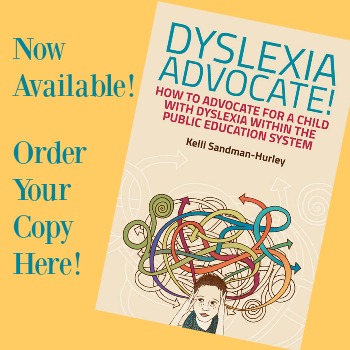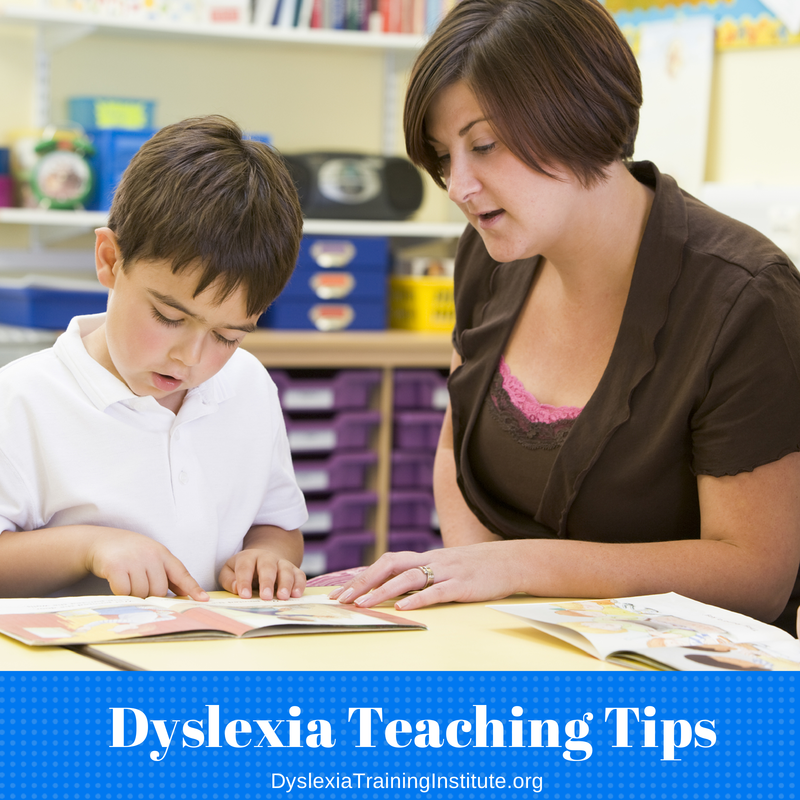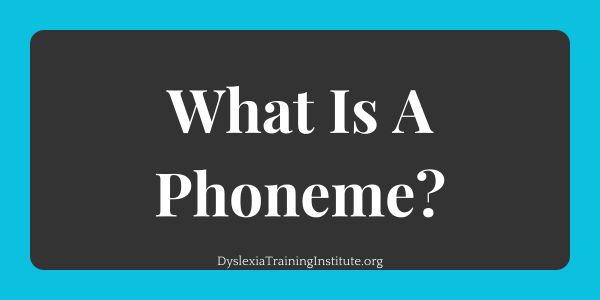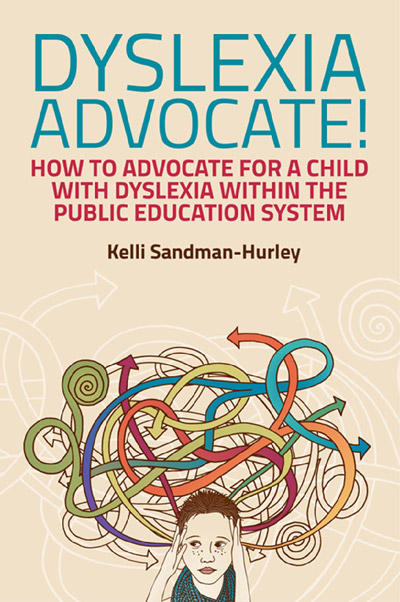 Download a PDF version of this article here.
Download a PDF version of this article here.
Well, we did it. Tracy and I went to the San Diego Unified School Board meeting and expressed our concern about the lack of instruction and identification of dyslexia. We attempted to educate the board within the three minutes we each had. I would love to report that it was a transformative experience and that they get it, but then I would be lying. While we are unsure of the impact of our statements, we are sure that we helped someone in that room and we exercised our rights as citizens to express concern about the public education system. What we can promise is that we will be back and we may be back every month until they do more than nod their heads.
Below is the speech that I wrote and delivered. Feel free to adapt if for your own use.
Dyslexia Speech for School Board Meeting
As you probably know, Autism affects one in 52 children which is 2% of the population. So, every school in San Diego Unified is affected by autism. What you might not know is the dyslexia affects 1 in 5 children, that is 20% of the students in your district. This means that in every classroom from kindergarten to twelfth grade sits a child, and probably 2 or 3, who have dyslexia – that’s a lot of kids. And to be sure, dyslexia is real. In fact, congress also agreed that it was real when it included dyslexia as a qualifying condition under the Special Education eligibility category of Specific Learning Disability and this was in 1975. Since that time we have collected a tremendous amount of evidence (point to books) about how dyslexia is manifested in the brain, how it manifests in the classroom, the genetic component of dyslexia, but more importantly, we know what works for students with dyslexia. Despite this mountain of research that has been well documented and is available to anyone interested in laymen’s terms, we attend IEP meetings on a regular basis in the SDUSD where the IEP team repeatedly tells parents that dyslexia does not exist, that it is a broad term (which it is not, it is SLD is the broad term), that SDUSD does not work with dyslexia and the list of unfounded comments goes on and on. Our concern tonight is that these bright children are marginalized despite the vast amount of research. They are held back and asked to change, when the instruction is what needs to change. They are denied their potential due to schools continued lack of education in the area of dyslexia. This is a civil rights issue. When twenty percent of a school district struggles to read and spell because of dyslexia and the district refuses to respond with an appropriate intervention, they fail not only to provide FAPE on a regular basis, but they violate the civil right to an appropriate education.
Tonight we implore you, we beg you, to make dyslexia a priority in your professional development as you are urged to do in CA statute 56245 which states, “The Legislature encourages the inclusion, in local in-service training programs for regular education teachers and special education teachers in local educational agencies, of a component on the recognition of, and teaching strategies for, specific learning disabilities, including dyslexia and related disorders.’
Imagine being a smart kid sitting in class day after day, failing day after day, despite knowing you were smart. Imagine being told to ‘work harder,’ ‘focus,’ or to ‘try harder.’ Imagine that you know you have, dyslexia, yet, you are told it doesn’t exist. Every day you are told to be more motivated. A student who fails day after day and continues to try is not lacking motivation. Imagine being the parents and advocates of these children with the current and research-based information about dyslexia and being told the school will not help. Imagine sitting in IEP after IEP and listening to educators continue to spread myths and misconceptions that have long since been debunked. Is that not a civil rights issue? These kids are being told to sit in the back of the bus, while those who do not have dyslexia are treated to the education they deserve.
Dyslexia is real and SDUSD owes it to these to kids to allow them to reach their potential.
I will leave you with these last two thoughts. The first is from the preeminent researcher in dyslexia, Dr. Sally Shaywitz, who states, “We do not have a knowledge gap, we have an action gap.”
Lastly, I would like to assure you that if the schools fought as hard for those with dyslexia, as they do against it, you would have a completely different and substantially less impacted special education system.






I am fully prepared to stand up at my towns next board MTG as an educator and part of CST and as a parent of a child with dyslexia and present this if that is OK with you both. Thank you I am feeling inspired.
Fantastic speech. I admire your advocacy!!!!
I cannot believe how close this is to a conversation I attempted to have with Barbara Ross with the Arizona Department of Education. I watched my grandson go from a cheerful confident child to a confused student who couldn’t understand why he wasn’t learning. He came home with stories of how the children laughed at him because he couldn’t spell ‘who’ in the 4th grade. Shame on our education system. He was shuffled from one resource class to another..Miss Ross said he would do fine because he had a wonderful personality. What a ridiculous statement. He is now 19 and told me he was able to get a job as a ‘human bill board’. This is what he feels qualified to do.
Thanks for trying to make a difference, I live in Illinois and they don’t recognize dyslexia either and as a mother of two dyslexic sons and wife of dyslexic, I see first hand the suffering they have endured in public school and society. I now tutor an orton gillingham program to try to make a difference. One person at a time, to try to make them feel good about themselves and they are worth educating.
I tutor dyslexic children using Barton system. It is making a great difference in their lives. I taught first grade for 30 years. I wish I knew then what I know now!!! Mary
Thank you for sending this letter it helps us a lot to have it in this form. It is amazing to see the lack of commitment form the educators to take on this problem. Even considering making sure that people who are studying to be teachers would receive training regarding this on growing issue in our nation and the impact on our children and the future of this country. Dyslexia children are solution minded. given them the training they need they hold the solutions to the many problem facing our world today. Have they forgotten the wonderful man and women that have had great impact on our world that had Dyslexia? in stead of topping into their wonderful potential, they are been driven to despair and choosing to go the troublesome route because know one care. This is in deed a crime. Thank you
Could not agree more with the content in the speech! As a mother of a dyslexic son, the battle to educate the educators & to advocate is endless, as I prepare for the 4th meeting at my son’s school this year!
We are trying to do exactly the same thing in South Australia. In Australia it is still not formally recognized so no funding!! We are determined to now pull in parent power through DAGBAGS
I just read what you presented to the school-board and I sing your praises. I first found out about dyslexia in 1985 when my then 7 year old child (my third child) did things different then her two older sisters (who were and remain extremely intelligent). I was told since she was left handed and they do things different. For two years i shrugged my shoulders, how would I know I am not left handed. Parent teacher night of her second grade was pretty much the start of the show down. The left handed excuse was given again and it was no longer acceptable. You see, as I read with her, she knew the stories word for word, but one day I put my hand over the pictures for no reason, and I could feel her body tensing and shaking and she could no longer tell me the story. She did not read the words, she memorized the story from the picture as the teacher read it to the class. It was a long road, especially when the president of the school-board, a father of 5 and principle of a grade school, believed there is no such thing, they are just lazy. I could go on and on, but I am asking, your next delivery of this speech put in “imagine being told by your educator that you are stupid and will never amount to anything” She now runs the digital sales department for our major newspaper in one of the largest cities.
Thanks for all your doing,
Peggy Rohan
Excellent post.
Dejavu…..great letter and I am using a lot of what you said with the comparison to Autism and the awareness.
Thank you for sharing your letter. While I have had independent conversations with Superintendent’s, Principals etc., I have not made the School Committee speech in such a succinct way. I will use this – thank you.
Another analogy I often use: Think of a school with 300 children with cancer that go to Children’s Hospital. 20% of those children get the experimental mixture of fruits/veggies and Vitamins….while the other children get the science proven method cures like Chemo and medicine. At the end of the session, we do not successfully save the 20% of the children. Do you see the child neglect? To me this is outrageous and Child Abuse.
Wonderful speech. Thank you for sharing it.
Wonderful speech. Thank you for sharing it.
I would love to use parts of this speech in some letters I am writing to various officials in Canada. Would it be ok if I used information. Would you like me to quote You?
You are inspiring! Cathy
Of course. Let us know how it goes.
Hi Dr. Kelli,
I have my presentation in December, we’ll see if I can get some one to video tape me!! It was so great meeting you in San Diego! I am still going to do everything I can to get you up here to do a simulation for Decoding Dyslexia BC!
Cathy
WOW and THANK YOU!
I learned today that my school district is identifying less than 1% of students as dyslexic, and just over 1% for elementary students, my daughter being 1 of 8 in a school of 523!
I requested this info from the ISD to help me prep for my presentation to the School Board.
The above is SO helpful!
After my battle with getting my daughter help and services, parents started reaching out to me for help. We should not have to fight to get help.
Thank you! Thank you! Thank you!
Thanks for this. I am in private practice in Canada and have watched with interest the struggle and breakthroughs in the US. In Ontario, we are so far behind. I did my B.Ed (Hons) in the UK almost 30 years ago. Phonemic awareness was a standard part of my training. In my first school (public elementary) we had 2 teachers who were dyslexia specialists, I wonder why we are not further on here in Ontario. You are correct, it would not be allowed in other areas. In 2008 Ontario’s Auditor General looked at Spec Ed in schools. The stats showed that 28.9% of children had LDs, 3% had autism and 9% were identified as gifted. For the latter 2 groups there are commendable resources and provision, along with a high profile. For the children with LDs, most of whom will be dyslexic with other co-morbidities, there is nothing.
It is utterly tragic. If anything is done, at best it is that they are given curriculums 1or 2 years below their grade ( which again shows a lack of understanding) or they are offered a guided reading program like the Levelled literacy approach which does not address what a student with dyslexia needs. I am due to attend an IEP meeting in the next couple of weeks and am not hopeful. I have already attended an SLP feedback session for the same student with some hostility from the principal who made it very clear that she didn’t want me there. In that meeting, incidentally, none of the recommendations were picked up by the school and it was implied that the suggested program would have to be administered by the parents and myself. No mention of the school purchasing it. Any specific intervention would have to be done outside of this school. Their only comment was that my student “tries so hard” and that seems to be sufficient.
Rant over, but reading and following stories like yours are helpful and supportive. Thank you for the work you are doing, the effects go way beyond where you are physically
For those that are interested a parent group led by my wife Dr. Tamara Tinkham will be speaking to the School Board Stillwater MN school district this on Thursday March 29th 2018 after a board learning session on dyslexia. We are trying to educate the board (administration is not listening) so they will NOT purchase a new patchwork Lucy Calkins leveled literacy curriculum. It’s a good story and not all mine to tell. It might be a good show because the administration tee’d up the purchase again after this group of really smart and powerful women educated the board members one by one, enough to get this learning session in place. Hope it unfolds that they go back to the drawing board. Hope you can live stream or watch it later: could be very interesting. https://stillwaterschools.org/boardmeeting